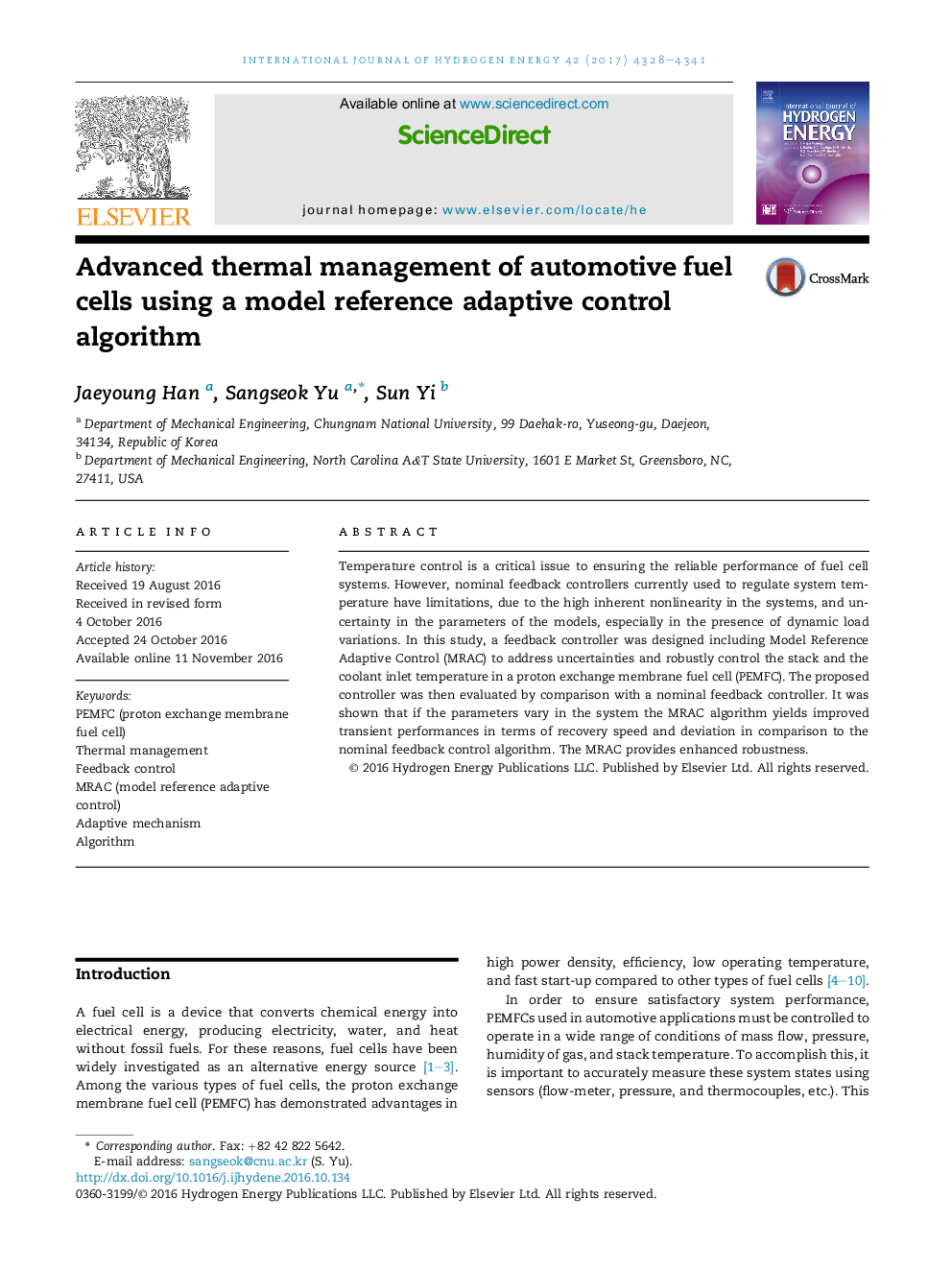| Article ID | Journal | Published Year | Pages | File Type |
|---|---|---|---|---|
| 5146353 | International Journal of Hydrogen Energy | 2017 | 14 Pages |
â¢A thermal management module is designed to predict the cooling performance.â¢An MRAC algorithm is designed to control the fuel system temperature.â¢Simulation is carried out to confirm feasibility of MRAC under dynamic load.â¢By algorithm comparison, MRAC is proven to be more feasible for controlling the system temperature.â¢MRAC comes to be more reliable under nominal dynamic operating schedules.
Temperature control is a critical issue to ensuring the reliable performance of fuel cell systems. However, nominal feedback controllers currently used to regulate system temperature have limitations, due to the high inherent nonlinearity in the systems, and uncertainty in the parameters of the models, especially in the presence of dynamic load variations. In this study, a feedback controller was designed including Model Reference Adaptive Control (MRAC) to address uncertainties and robustly control the stack and the coolant inlet temperature in a proton exchange membrane fuel cell (PEMFC). The proposed controller was then evaluated by comparison with a nominal feedback controller. It was shown that if the parameters vary in the system the MRAC algorithm yields improved transient performances in terms of recovery speed and deviation in comparison to the nominal feedback control algorithm. The MRAC provides enhanced robustness.
